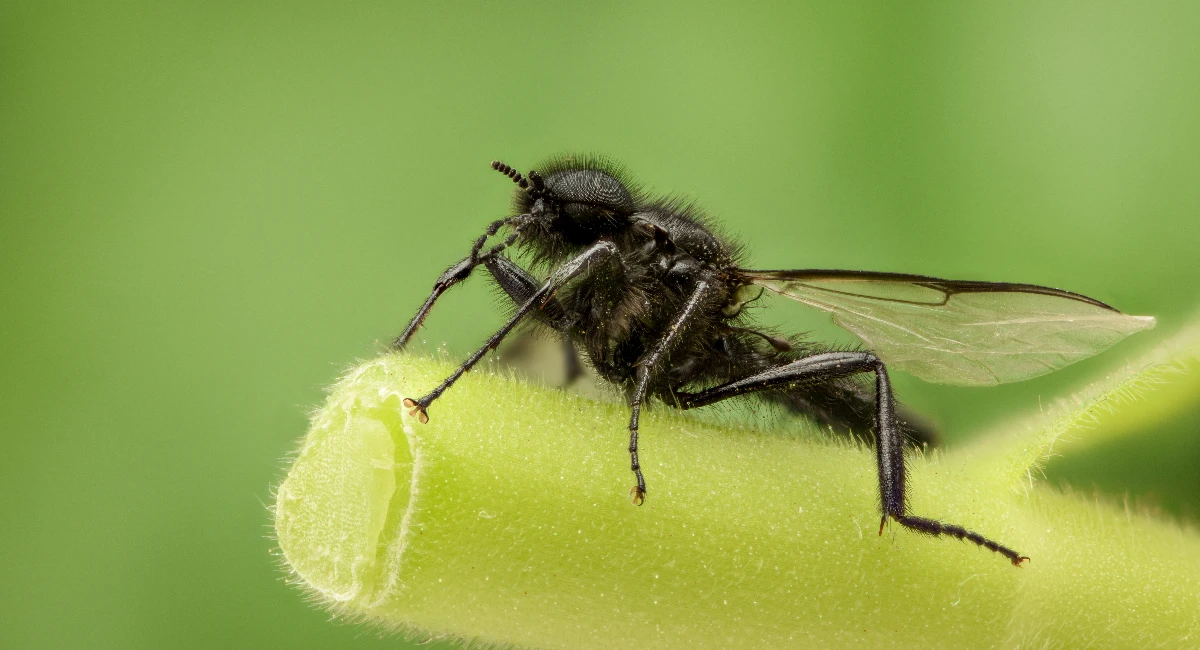For your Home
Login or register for the customer portal
There are a lot of wasps in the world. The western part of the United States, with its unique weather and climate, gets some stinging pests like various wasp species that other parts of the country don't get. There are a number of larger wasps with painful stings in this part of the country, too.
In the western U.S., you can find wasps like the beautiful, but potentially painful, Tarantula Hawk Wasp. There are other solitary wasps which may not create huge nests or infestations, but might set up their nests around your home and put yourself, your family or pets at risk from painful stings. One of the more common is the great black wasp.
Western Exterminator is the expert in all types of wasps and other stinging pests. If you are finding yourself swarmed with too many wasps, contact your local Western Exterminator office today.
The great black wasp is also known by its scientific name Sphex pensylvanicus. They are a species of digger wasp and are found across North America. They are found on the east coast as well as the west coast and have proven to be quite adaptable to North America's weather. However, the year-round warmth of the western U.S. allows these wasps to be active throughout the year.
The great black wasp, as you might imagine, is black in color. Unlike other wasps, they do not have stripes or other markings. They have the standard wasp body with large wings, large head and eyes, a very tiny, thin waist and then a large back end. What sets the great black wasp apart from others is that they can grow up to 1 - 1.3 inches in length. The bigger black wasps are the females and they are the ones who carry the powerful stinger.
Yes, black wasps make nests. However, unlike yellow jackets or paper wasps, the great black wasp digs their nest into the ground. They are generally solitary wasps who do not create huge colonies like other species, although their nests can have multiple larvae and they may lay multiple eggs.

Black wasps are similar to the Tarantula Hawk Wasp in that they are parasitic and lay their eggs on other insects. While the Tarantula Hawk prefers the large spiders, the great black wasps will use katydids and large grasshoppers.
Black wasps will sting their prey three times. This paralyzes the prey, but keeps it alive. The female wasp then carries their prey back to the underground nest and pulls it underground. There they will lay their eggs right on the stomach or beneath the prey insect. Eventually, the eggs hatch and begin to devour the katydid or grasshopper. The prey is kept alive for as long as possible while the larval wasps continue to feed and eventually grow large enough to leave the nest.
The short answer is yes. Female black wasps are the only ones who will sting. Being solitary wasps, it is very rare and difficult to be stung by a black wasp. However, if someone were to handle or threaten a great black wasp, they could end up with a painful sting. Although the sting is painful, it is not nearly as painful as that of the Tarantula Hawk Wasp or other species.
Despite this, it would probably be best not to handle a great black wasp and risk the sting.
Although the sting may be painful, the great black wasp is not really considered dangerous. The exception to this is that if you have an allergy to insect stings, a great black wasp sting might be as much of a risk as others. If you experience any sort of allergic reaction to a black wasp sting, seek medical attention immediately.

The great black wasp is considered a pollinator. Thus, they are considered beneficial to the environment. They can also help control the population of grasshoppers (which eat plants and crops) and katydids. There are even some plant species which seem to be particularly helped by pollination from the great black wasp.
Although it is unlikely you will end up with an infestation of great black wasps due to their solitary nature, if you do find yourself infested with wasps of any kind, Western Exterminator can help. Keep your family safe from wasp stings with Western Exterminator wasp control and removal services. Our experts can determine which type of wasps is there, and how to get rid of them.
Contact your local Western Exterminator office today and discuss our wasp and stinging pest treatments.